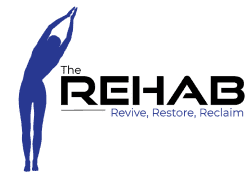At Rehab by RescueMD, we often hear this common dilemma from patients working to improve their heart health: “Should I wake up early to squeeze in a workout, or is it healthier to get a full night of sleep?” As providers of cardiac rehab and experts in exercise physiology, we believe this decision requires thoughtful consideration of your body’s needs, especially if you’re managing chronic conditions or recovering from cardiovascular events.
Sleep vs. Exercise: Which Should Come First?
Adequate sleep and regular exercise are both vital to overall health. Sleep supports hormone regulation, memory consolidation, and muscle recovery, while regular workouts improve cardiovascular health, build strength, and boost metabolism. Morning workouts can energize your day, but not at the cost of chronic sleep deprivation. Ultimately, achieving balance is essential. Sacrificing one consistently for the other can undermine your health goals.
How Sleep Loss Affects Health Short-Term and Long-Term
Short-term sleep deprivation reduces alertness, impairs decision-making, and increases mood instability—all of which make it harder to maintain a healthy routine. Long-term sleep loss is associated with higher risks of cardiovascular disease, type 2 diabetes, and even increased mortality for those who routinely sleep fewer than 7–8 hours per night.
Benefits of Regular Exercise on Health and Longevity
Consistent physical activity is proven to prevent and help manage chronic diseases. It improves blood pressure, insulin sensitivity, cholesterol levels, and body composition. Individuals who exercise regularly have a lower risk of developing heart disease and metabolic disorders.
How to Decide if You Should Trade Sleep for a Workout
Evaluate your recent sleep history. If you’ve been consistently getting 7–8 hours per night and feel well-rested, an early morning workout may be a healthy choice. But if you notice fatigue, irritability, or poor exercise performance, it’s best to prioritize restorative sleep.
When Is It Okay to Skip Sleep for Exercise?
If you’ve been sleeping well throughout the week, trading a bit of sleep occasionally for a workout is generally okay. But if you’re already sleep-deprived, it’s more beneficial to catch up on sleep rather than stress your body further with intense activity.
Tips for Balancing Sleep and Exercise for Heart Health
- Treat both sleep and exercise as non-negotiable pillars of your health.
- Keep workouts efficient with 20–30 minutes of focused effort.
- Consider low-intensity evening movement like walking or stretching.
- Practice good sleep hygiene—limit screens, go to bed, and wake up at consistent times.
- Listen to your body: if you’re drained, sleep; if you’re energized, move.
At Rehab by RescueMD, our cardiac rehab team and exercise physiologists help you create a sustainable routine that balances movement and recovery. Whether you’re managing high blood pressure, recovering from a cardiac event, or simply trying to live a longer, healthier life, we’ll help you find the rhythm that works for your body.
📅 Schedule your consultation today








